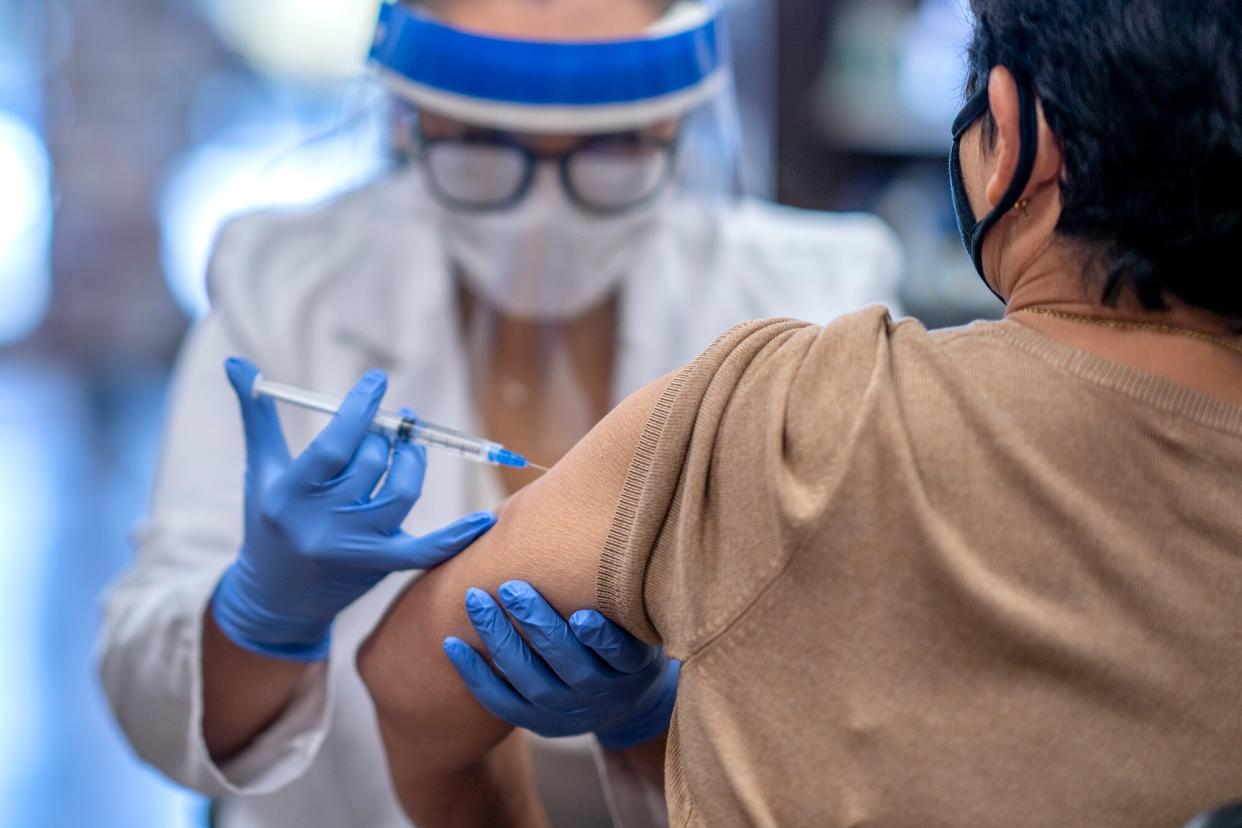Health Experts Shut Down Misinformation About Pfizer COVID Vaccine Trial: 'They Weren't Skipping a Step'

- Oops!Something went wrong.Please try again later.
- Oops!Something went wrong.Please try again later.
Getty
Health experts are shutting down misinformation being spread about whether or not Pfizer and its partner BioNTech knew about their vaccine's impact on the transmission of COVID prior to the vaccine entering the market.
On Oct. 10, Janine Small, president of international developed markets at Pfizer, testified before the European Parliament's Special Committee on the COVID-19 Pandemic. During the hearing, Rob Roos, a Dutch member of the European Parliament, asked Small, "Was the Pfizer COVID vaccine tested on stopping the transmission of the virus before it entered the market?"
Small responded, "No. We had to really move at the speed of science to really understand what is taking place in the market."
Roos later shared a clip of the exchange on Twitter in a now-viral post, claiming that earlier in the pandemic Pfizer lied about not testing the vaccine's impact on transmission of the virus.
The post led to a spread of misinformation across many social media platforms implying both the company and politicians misled the public in order to increase vaccination rates. Many claims online involving Small's comments from the hearing also included the hashtag #PfizerLiedPeopleDied.
However, Pfizer never claimed to have conducted studies on the vaccine's effect on transmission in its original clinical trials prior to the company's COVID vaccine receiving emergency use authorization by the FDA in December 2020.
"There's a different type of clinical trial you can run to understand transmission. What they were trying to understand was infection and understanding how the vaccine can reduce the risk of infection and infections that cause hospitalization and death," Jessica Malaty Rivera, infectious disease epidemiologist and senior advisor at the Pandemic Prevention Institute, tells PEOPLE. "It wasn't a transmission study to begin with."
RELATED: What to Know About the New COVID-19 Booster That Targets the Omicron Variant
RELATED: FDA Authorizes Updated Pfizer and Moderna Boosters That Target Omicron Variant of COVID
In a press release announcing authorization, the FDA said that "at this time, data are not available to make a determination about how long the vaccine will provide protection, nor is there evidence that the vaccine prevents transmission of SARS-CoV-2 from person to person."
In order to receive emergency use authorization by the government agency, companies were required to provide evidence that their vaccines were safe and prevented illness. It is not required for companies to provide evidence that their vaccines would prevent the spread of the virus.
"They weren't skipping a step or jumping some sort of loophole here. They had to satisfy the endpoint — which are, simply put, goals and the objective of the clinical trial. During the trials, [the endpoint] was a certain number of infections," Rivera continues, emphasizing that transmission was not a study endpoint and the trials were centered on the vaccine's efficacy. "When they had those extraordinarily high efficacy data then they said this is a safe and effective drug that can be released to the public."
She adds that after the vaccine is out in the public with emergency use authorization, its impact on transmission can then be studied in real time, and further research found that Pfizer's vaccines do also reduce transmission of COVID.
"You need to know how [the vaccine] operates in a population with a virus circulating to see how it slows down transmission, and it did," Rivera says of the Pfizer vaccine. "Because the fewer infections, the lower the transmission. You can't transmit a virus that you don't have."
For example, the Centers for Disease Control and Prevention stated in an August report that being up to date on the recommended COVID vaccine doses "provides a transient period of increased protection against infection and transmission after the most recent dose, although protection can wane over time."

